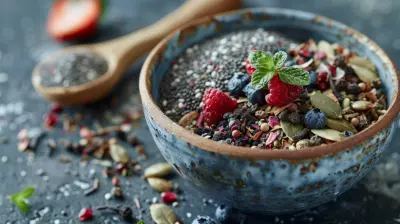The Role of Nutrition in Supporting Mental Health
11 October 2025
Let’s be honest—when life gets stressful, most of us don’t exactly reach for a kale smoothie. Nope, we dive headfirst into a bucket of ice cream or inhale an entire pizza like it’s an Olympic sport. But here’s the kicker: What you eat isn’t just affecting your waistline; it’s messing with your brain, too.
Yep, food isn’t just fuel; it’s the secret weapon (or villain) in the story of your mental health. So, before you grab that third cup of coffee and pretend it counts as breakfast, let’s talk about how nutrition actually plays a massive role in keeping your mind sharp, your mood balanced, and your stress levels somewhat manageable. 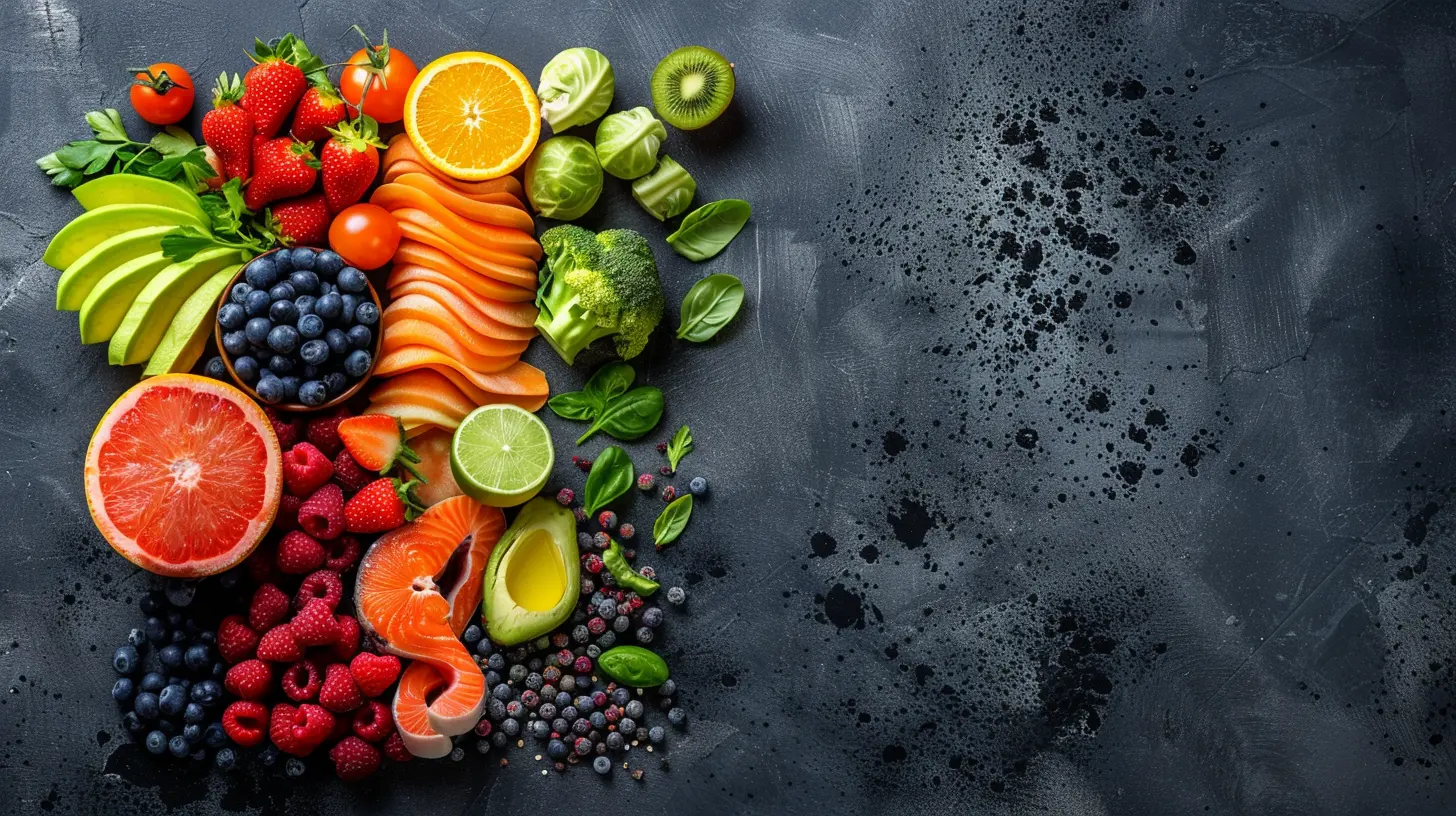
Why Your Brain Cares About What You Eat
Your brain is like that high-maintenance friend who only thrives under the exact right conditions. It needs nutrients—lots of them. And if you think you can power this bad boy on energy drinks and instant ramen, think again.Food affects the production of neurotransmitters (those little chemical messengers that control how we feel), inflammation levels, and even the gut microbiome (which sounds fancy but is basically a bustling metropolis of bacteria that influence mood).
In short? Eat garbage, feel like garbage. Eat well, feel... well, well. 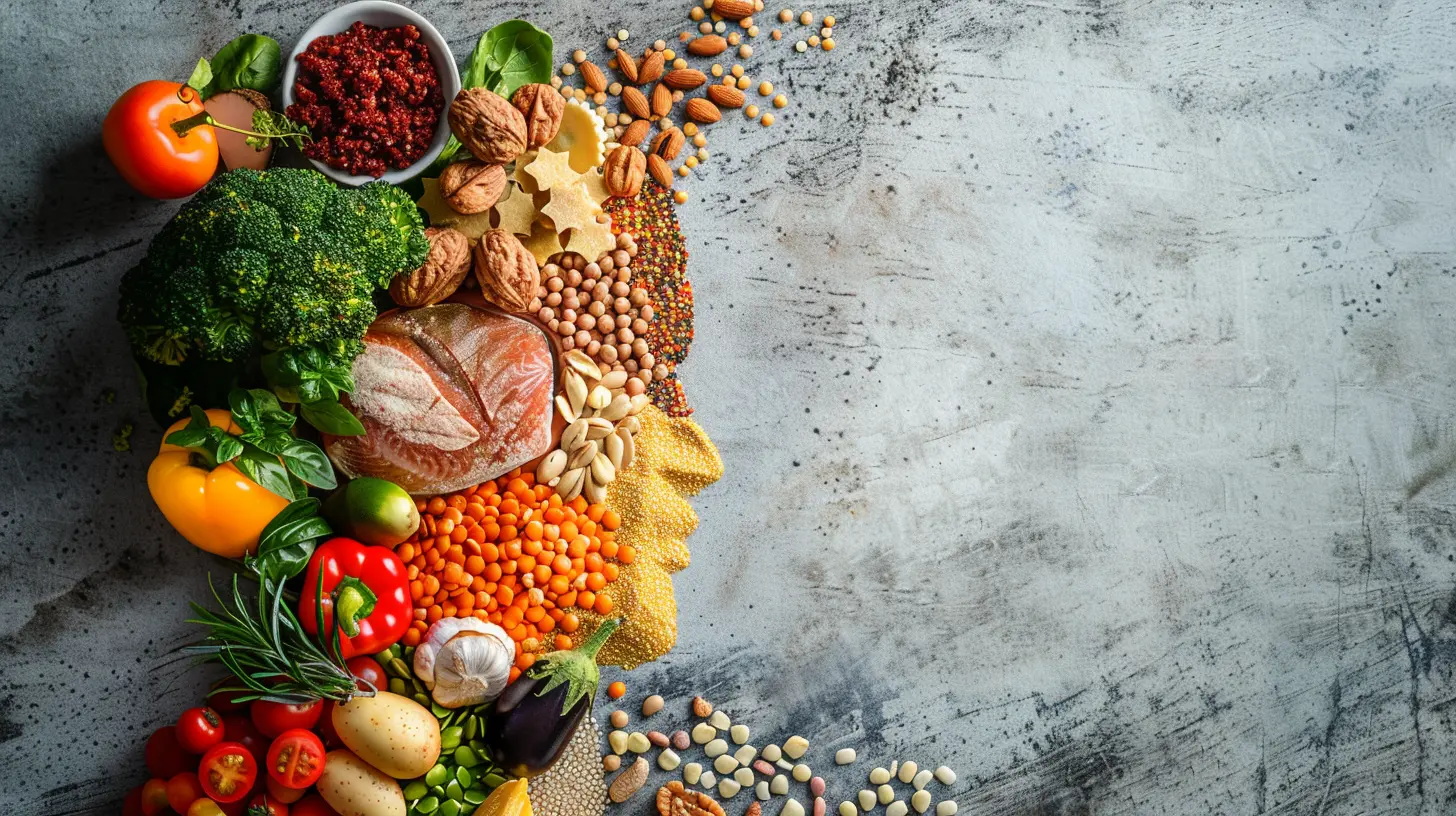
The Brain-Food Connection: What Science Says
Let’s get a little nerdy for a second. Studies show that poor nutrition can increase the risk of anxiety, depression, and even cognitive decline. Meanwhile, a balanced diet rich in vitamins, minerals, and healthy fats can boost mental well-being, improve focus, and even help with stress.So, what exactly should you be eating? And what should you be avoiding like your ex’s text messages? Let’s break it down. 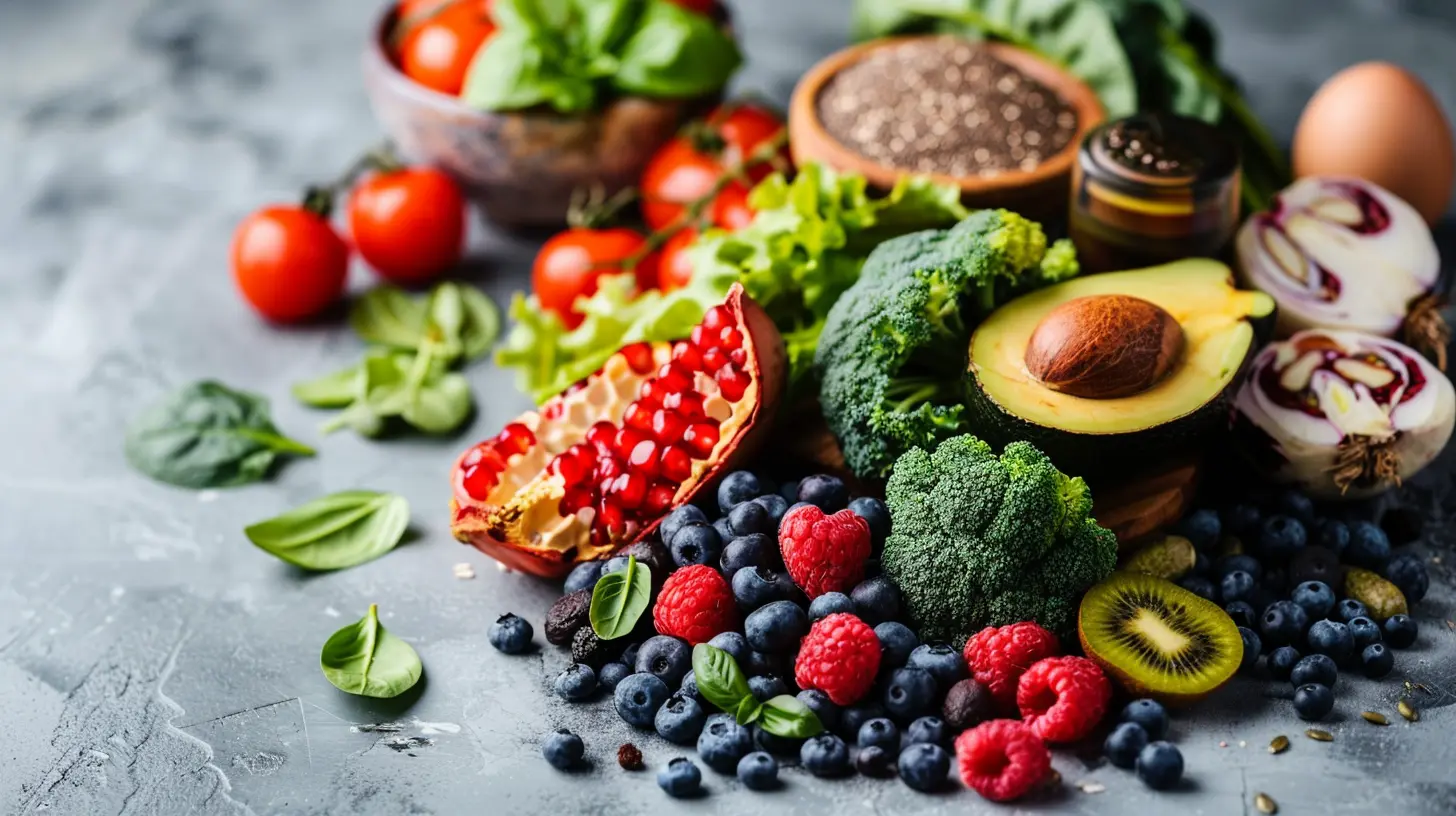
The Nutrients Your Brain is Begging For
1. Omega-3 Fatty Acids: The Ultimate Brain Booster
If your brain had a Tinder profile, it would be swiping right on omega-3s all day long. These essential fats (found in foods like salmon, walnuts, and flaxseeds) are a big deal for brain health—helping with cognitive function and reducing inflammation.Lack of omega-3s? Say hello to brain fog, mood swings, and the emotional resilience of a soap opera character.
2. B Vitamins: The Mood Stabilizers
Think of B vitamins (B6, B12, folate) as the unsung heroes of mental health. They help produce serotonin and dopamine—aka the "feel-good" chemicals. Low levels? That’s when anxiety and depression start knocking on your door.Where do you find these magic mood enhancers? Leafy greens, eggs, poultry, and whole grains. Yes, that means ditching ultra-processed junk for actual real food.
3. Magnesium: The Stress-Buster
Feeling stressed? Magnesium is like a chill pill, but natural. It helps regulate stress hormones and supports relaxation.Best sources? Nuts, seeds, dark chocolate (yes, dark chocolate!), and leafy greens. So, while stress-eating, maybe swap your bag of chips for a handful of almonds—or, fine, some dark chocolate-covered almonds.
4. Probiotics: The Gut-Brain Whisperers
Your gut and brain are basically besties, connected by a highway of nerves and chemicals. If your gut’s unhappy, guess what? Your brain isn’t having a great time, either.Enter probiotics—those wonderful little gut-friendly bacteria found in yogurt, kimchi, sauerkraut, and kombucha. Feed them well, and they’ll help keep your mood in check.
5. Vitamin D: The Sunshine Vitamin
Ever notice how your mood dips in the winter? That’s because a lack of sunlight = a lack of vitamin D, which plays a huge role in brain function and mental health.If you can’t get enough sunshine, look for vitamin D in fatty fish, fortified dairy products, or even a supplement (because no one wants to feel like a sad, tired hermit). 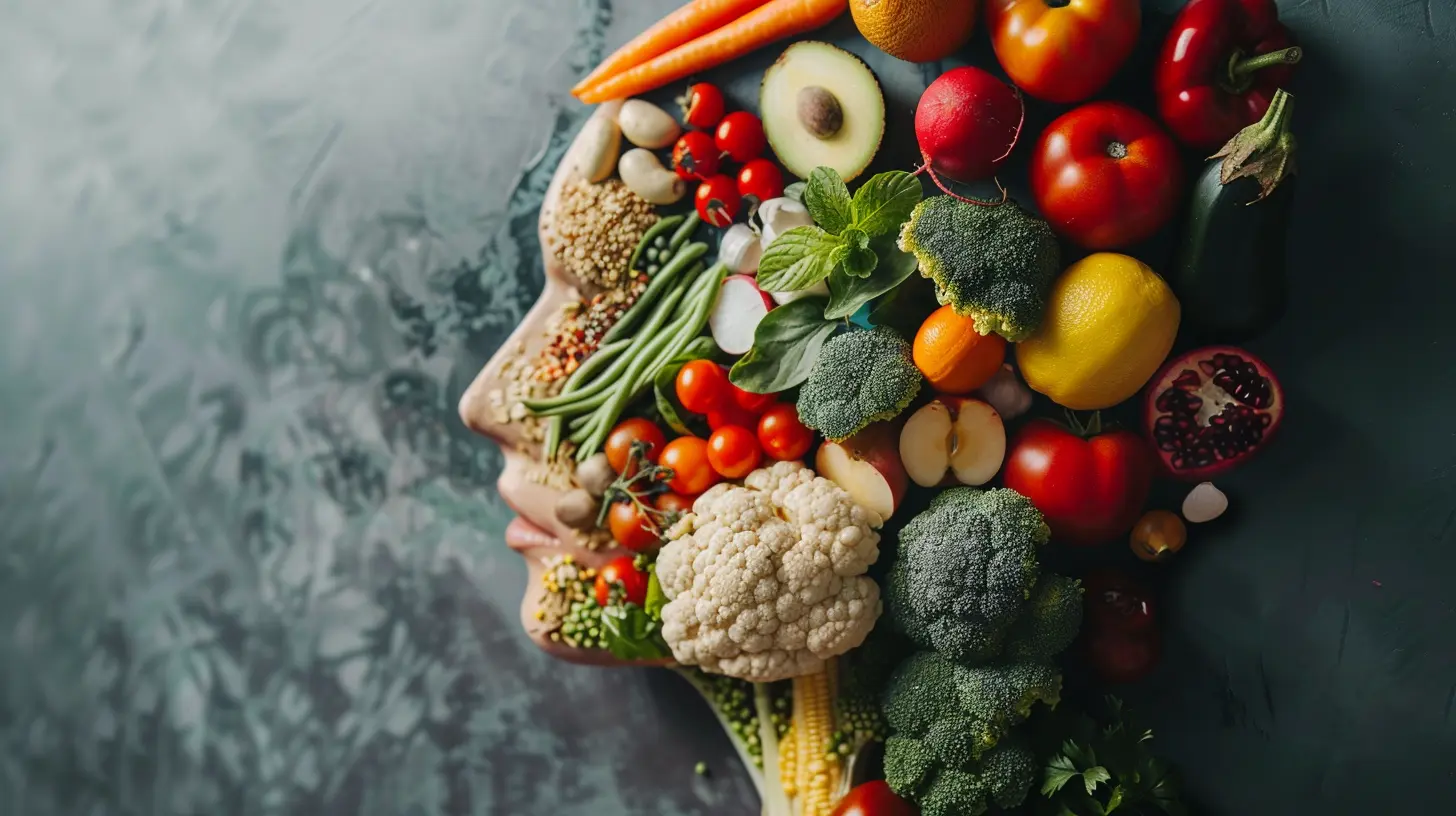
The Foods That Sabotage Your Mental Health
Now that we’ve covered the good stuff, let’s talk about the foods that are basically plotting against your happiness.1. Processed Sugars: The Instant Mood-Wreckers
Sure, sugar feels great—for like five minutes. Then comes the inevitable crash, leaving you sluggish, cranky, and questioning your life choices. Excess sugar spikes blood sugar levels and wreaks havoc on mood stability.2. Highly Processed Foods: The Brain Fog Culprits
Fast food, microwave meals, and packaged snacks might be convenient, but they’re loaded with preservatives and artificial junk that contribute to inflammation, brain fog, and even depression.3. Excessive Caffeine: The Anxiety Fuel
Love your triple-shot espresso? Your brain might not. While caffeine gives you that jolt of energy, too much can also contribute to anxiety and disrupt sleep—two things your mental health really doesn’t need.Simple Ways to Eat for Better Mental Health
Okay, so now that we know what helps (and what hurts), how do you actually make the switch? Here’s the game plan:- Start small – No need to go full-on health guru overnight. Just swap one processed meal for something fresh each day.
- Hydrate like your life depends on it – Because, well, it kinda does. Dehydration = brain fog and fatigue.
- Ditch the junk (most of the time) – No one’s saying you can never have ice cream again. Just maybe don’t make it your go-to food group.
- Eat the rainbow – The more colorful your plate, the better. Natural colors = a variety of nutrients.
- Listen to your gut – No, really. If a food makes you feel sluggish, bloated, or just meh, it might not be your brain’s best friend.
Final Thoughts: Your Brain Deserves Better
Let’s face it—food is basically fuel for your brain. And if you keep filling up on low-quality gas, don’t be surprised when your mental engine starts sputtering.Good nutrition isn’t just about looking good (although, hey, that’s a bonus). It’s about feeling good—having the energy, focus, and emotional balance to take on whatever life throws your way.
So, next time you’re reaching for that sugar-packed energy drink, maybe—just maybe—grab a handful of nuts instead. Your brain will thank you.
all images in this post were generated using AI tools
Category:
Mental HealthAuthor:

Tiffany Foster
Discussion
rate this article
1 comments
Juno Rhodes
Absolutely loved this article! 🌟 It's amazing how nourishing our bodies can uplift our minds and boost our well-being. Let's celebrate the power of nutrition for a happier, healthier life! 🍏💚
October 21, 2025 at 4:20 PM

Tiffany Foster
Thank you so much! I'm glad you enjoyed the article and agree on the vital connection between nutrition and mental health! 🌱✨

